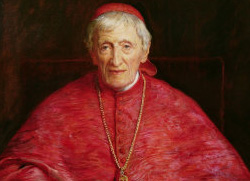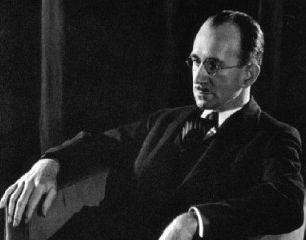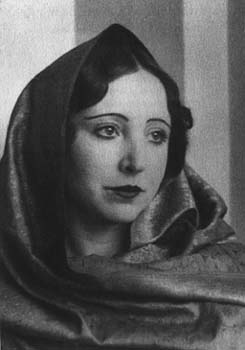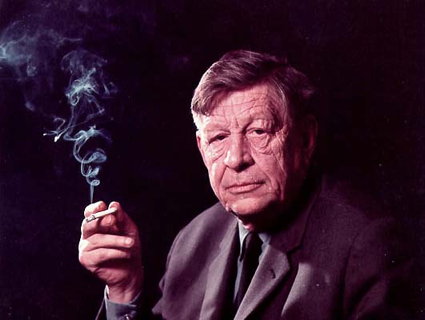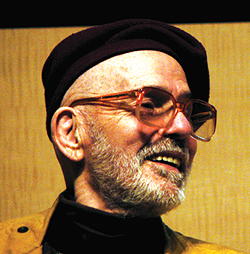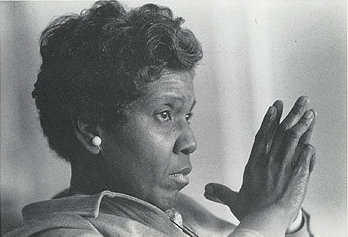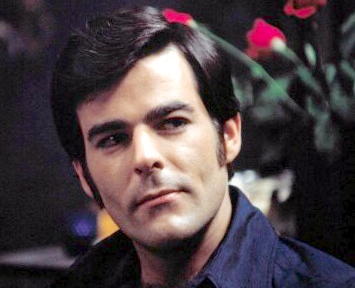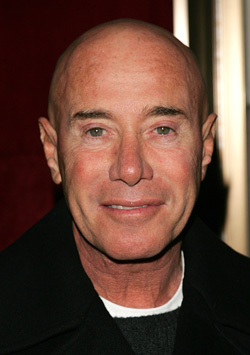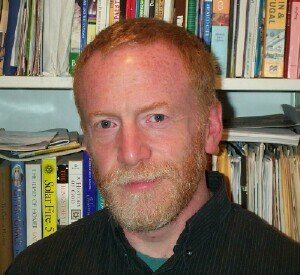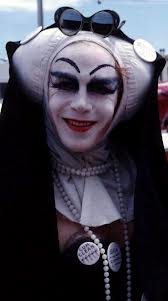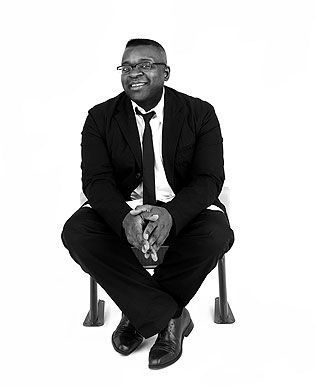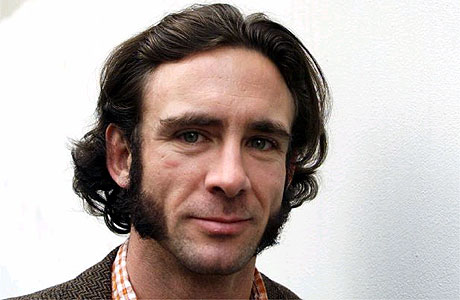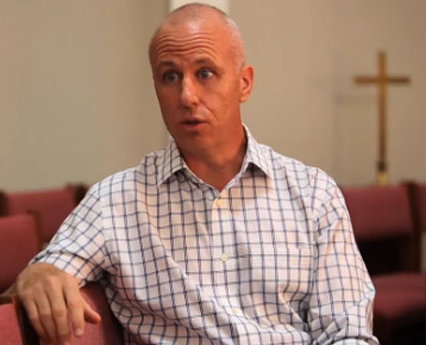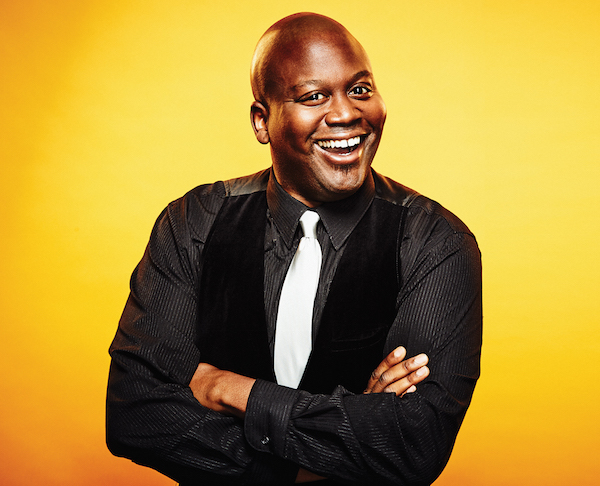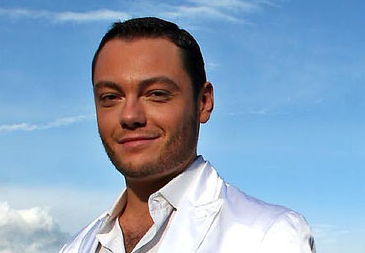|
presents THIS DAY IN GAY HISTORY based on: The White Crane Institute's 'Gay Wisdom', Gay Birthdays, Gay For Today, Famous GLBT, glbt-Gay Encylopedia, Today in Gay History, Wikipedia, and more …
Collected by Ted February 21 [{(o)}]|[{(o)}]|[{(o)}]|[{(o)}]| [{(o)}]|[{(o)}] 1788 – New York amends its sodomy law to also require the forfeiture of estate of convicted sodomites.
1801 – John Henry Newman, the English Catholic cardinal was born on this date (d.1890). There's no denying that the great English churchman's most important work, the Apologia pro Vita Sua, contains many homoerotic passages of intense beauty, but is there reason to suspect that his love for other men extended to the flesh itself? Newman was particularly devoted to his friend Brother Ambrose, fourteen years his junior. Grief-stricken by his death in 1875, the cardinal threw himself upon the deathbed and spent the night with the corpse. Newman joined his friend in death fifteen years later. By his own instructions, his body was buried in the same grave. The two men have a joint memorial stone inscribed with the motto Newman had chosen, Ex umbris et imaginibus in veritatem ("Out of shadows and phantasms into the truth"). By any measure, theirs was a close friendship.
1892 – on this date the American psychiatrist Harry Stack Sullivan was born (d.1949). In the understanding of mental disorders, this influential psychiatrist believed that psychoanalysis, although essentially valid, needed to be supplemented by a thoroughgoing study of the impact of cultural forces upon the personality. He made his reputation based on his experimental treatment ward for schizophrenics at the Sheppard Pratt Hospital, between 1925-29. The ward had a cure rate of approximately 86% without neuroleptic medication. All of the patients on the ward were gay men, and the specially trained ward attendants were either gay or gay-friendly. Thus the patients, who were all young male homosexuals as well as schizophrenics, in their positive interactions with the attendants, would heal the wounds from societal prejudice and missing male intimacy. As World War II approached, he sought to prevent the psychiatric casualties that had resulted during the brief involvement of the United States in World War I. Sullivan convinced the War Department that a systematic, professional mental health screening process with limited attention to sexual issues would help the government avoid the immense cost of treating wounded soldiers. This screening would identify gay men. Sullivan believed that such men were not suited to military service. Sullivan held that everyone possessed an emotional and sexual interest in both sexes. Males normally passed through a homosexual phase, but men who remained homosexual suffered from faulty personality development. A Selective Service screening would work as a form of preventive psychiatry, a way of protecting gay men from sustaining damage. Although Sullivan thought adult homosexuals suffered from faulty personality development, he did not see homosexuality as an illness and separated himself from most of his professional peers by advocating that gay men and lesbians should be accepted as is. In the years following his death, recognition of his accomplishments was intentionally overlooked because of his own homosexuality. Sullivan, however, is now acknowledged as the prime developer of the interpersonal approach to psychiatry and as one of the great American psychiatrists of the century. Forgotten, finally, is his great "sin." In middle age, he adopted a fifteen-year-old male patient, with whom he lived as "father" and "son" for more than 15 years. Sullivan had a long-term sexual relationship with the young man, James Inscoe Sullivan ("Jimmie"). Jimmie was known to Sullivan's associates as his adopted son, which allowed Sullivan to keep his sexual identity in the closet.
1903 – The bisexual novelist Anaïs Nin is best known for her sexually frank diaries and the erotica published after her death. (d.1977) Nin was born in Neuilly-sur-Seine, a suburb of Paris, the only daughter and oldest child of Joaquin Nin, a Spanish composer and pianist who abandoned his family when she was ten years old, and Rosa Culmell, an operatic singer and daughter of a well-to-do Cuban family. Rosa took her three children to New York when Anaïs was eleven years old. On board ship, she began a diary that would grow to 150 volumes in more than 50 years. Though the first volume would not be published until 1966, Nin began publishing poetic fiction based on her diary in 1936. Nin's most prolific period of creativity was during the time that she lived with her husband, Hugh Guiler, in Paris from 1923 to 1939, especially after she met Henry Miller at the end of 1931. Her first book, just completed when she met Miller, was D.H. Lawrence: an Unprofessional Study (1932). Out of the frenzied writing of her diary during this period of her sexual awakening—when she fell in love with first June and then Henry Miller—came a brief poetic novelette (The House of Incest, 1936) and a book of short fiction (The Winter of Artifice, 1939). These are still among her best fiction. Though a severely censored and altered version of the diaries of this period became her Diary I (1966), the unexpurgated portions of this period appeared long after her death as Henry and June (1986) and Incest (1992). The title of the latter volume, like the impetus for her diary writing, came from sexual violation and abandonment by her beloved, narcissistic father. She began her diary not only to win him back but to create the "good" girl whom he could love. Though she saw him on various occasions when she first moved back to France, she reconciled with him in 1932. Then they began a sexual affair propelled both by his continued exploitation of her need for love and by her recent sexual awakening. Eventually, after psychoanalysis, she abandoned her father, who died in Cuba in 1949. In the 1940s in New York City, Nin set up her own printing press in Greenwich Village; here she republished her Paris books and a collection of short fiction, Under a Glass Bell (1944). She also wrote erotica—admitted hack work—for a dollar a page, money she gave to the youthful and needy artists in her circle. Her first mainstream publisher, Dutton, was secured for her by Gore Vidal, one of her growing group of gay and bisexual male friends (several of whom became her lovers). After mining her diary for six novels—Ladders to Fire (1946), Children of the Albatross (1947), The Four Chambered Heart (1950), A Spy in the House of Love (1954), Seduction of the Minotaur (1961), and Collages (1964)-—Nin began publishing the diaries. She loved emotionally and physically both men and women. Though she denies lesbianism in Seduction of the Minotaur, unpublished portions of her diary suggest otherwise. During the last nearly thirty years of her life, she divided her time alternately between two husbands, Hugh Guiler in New York City and Rupert Pole in Los Angeles.
1903 – New York City police raid the Ariston baths and arrest 26 men for sexual activity (the first recorded raid on a US gay bathhouse). 7 are later sentenced to between 4 and 20 years imprisonment. The others in the place are released with a warning and made to leave the building passing through a jeering crowd that had gathered.
1907 – W.H. Auden, the English poet was born (d.1973). Regarded by many as one of the greatest writers of the 20th century, his work is noted for its stylistic and technical achievements, its engagement with moral and political issues, and its variety of tone, form, and content. The central themes of his poetry are: personal love, politics and citizenship, religion and morals, and the relationship between unique human beings and the anonymous, impersonal world of nature. Until he was fifteen he expected to become a mining engineer, but his "passion for words" had already begun. He wrote later: "words so excite me that a pornographic story, for example, excites me sexually more than a living person can do." Auden's first boarding school was St. Edmund's School, Surrey, where he met Christopher Isherwood, later famous in his own right as a novelist. In 1925 he went up to Christ Church, Oxford, with a scholarship in biology, but he switched to English by his second year. Friends he met at Oxford included Cecil Day Lewis, Louis MacNeice, and Stephen Spender; these four were commonly though misleadingly identified in the 1930s as the "Auden Group" for their shared (but not identical) left-wing views. He was reintroduced to Christopher Isherwood in 1925; for the next few years Isherwood was his literary mentor to whom he sent poems for comments and criticism. Auden probably fell in love with Isherwood and in the 1930s they maintained a sexual friendship in intervals between their relations with others. In 1935-39 they collaborated on three plays and a travel book. Auden and Isherwood sailed to New York in January 1939, entering on temporary visas. Their departure from Britain was later seen by many there as a betrayal and Auden's reputation suffered. In April 1939 Isherwood moved to California, and he and Auden saw each other only intermittently in later years. Around this time, Auden met an eighteen-year old poet Chester Kallman, who became his lover for the next two years (Auden described their relation as a "marriage" that began with a cross-country "honeymoon" journey). Kallman and Auden remained companions for the rest of Auden's life, sharing houses and apartments from 1953 until Auden's death. Auden dedicated both editions of his collected poetry (1945/50 and 1966) to Isherwood and Kallman. In 1940-41, Auden lived in a house in Brooklyn Heights which he shared with Carson McCullers, Benjamin Britten, and others, and which, known as the February House became a famous center of artistic life. From 1956-61, Auden was Professor of Poetry at Oxford University where he was required to give three lectures each year. This fairly light workload allowed him to continue to winter in New York, where he now lived on St. Mark's Place, and to summer in Europe, spending only three weeks each year lecturing in Oxford. He now earned his income mostly by readings and lecture tours, and by writing for The New Yorker and other magazines. During his last years, his conversation became repetitive, to the disappointment of friends who had known him earlier as a witty and wide-ranging conversationalist. In 1972, he moved his winter home from New York to Oxford, where his old college, Christ Church, offered him a cottage, but he continued to summer in Austria. He died in Vienna in 1973 and was buried in Kirchstetten. Aside from graduate school courses in English literature, where life is taken very seriously, the question about the great English poet that most people want answered is: Did Auden write a poem about a blow job or didn't he? The answer is yes, he did. The poem, written in 1948 to amuse himself and his friends, is actually called "The Platonic Blow," (See below) although it appears in unauthorized form as "The Gobble Poem," hardly a title that a poet of Auden's quality would have chosen. After "Fuck You: A Magazine of the Arts" published the poem without the poet's permission in 1965, "A Platonic Blow" was issued in "a Trade edition" of 300 copies and "a Rough Trade edition of 5 numbered copies, each with beautiful slurp drawings by the artist Joe Brainard." The poem's first two lines suggest its flavor: "It was a Spring day, a day for a lay, when the air / Smelled like a locker-room, a day to blow or get blown." Auden proudly admitted authorship in 1968.
1924 – George Birimisa (d.2012) was an American playwright, actor, and director who contributed to the explosion of gay theater in the mid-1960s during the early years of Off-Off-Broadway. His works feature sexually explicit, emotionally charged depictions of working-class homosexual men, often closeted, in the years before the Stonewall riots (1969) triggered a national and international gay rights movement.
George Birimisa was born in Santa Cruz, California, one of five children of Croatian Americans. While George was still a child, his father died as the result of injuries and imprisonment while under arrest after speaking on behalf of the Communist Party at a labor rally. Birimisa's mother remarried but his stepfather rejected him and his two older brothers. George spent most of his childhood in a Catholic orphanage then in a series of foster homes. After serving in the U.S. Naval Reserve during World War II, Birimisa supported himself with a series of jobs, including factory worker, bartender, disc jockey, health studio manager, television network page, prostitute, and Howard Johnson's counterman. In the latter position, he once refused service to Walter Winchell, who arrived after closing time. In retaliation, the powerful columnist ran an item alluding to the restaurant, on Sixth Avenue in Greenwich Village, as a hangout for "vag-lewd" (i.e., homosexual) types. Winchell's punishment backfired: the publicity turned that branch of Howard Johnson's into a magnet for gays. The incident convinced Birimisa, who had begun writing fictional accounts of his life, to start writing honestly about his sexuality. He became determined to write plays at age 41, while studying acting with Uta Hagen at the Herbert Berghof Studio in New York City. Birimisa's first produced play, Degrees, a portrait of a gay relationship, premiered at Theater Genesis in the East Village, Manhattan. At the time, gay plays usually received no serious artistic or critical attention. "For years," the playwright recalls, "even gay people would ask me, 'When are you going to write your first real play?'" Degrees included autobiographical elements, which became stronger and more explicit in Birimisa's later works. Above all, he writes out of a need to tell the truth about his own life. "I don't agree that there are 'shades of truth,'" he says. "We all know the truth, deep inside ourselves. As artists, we have a responsibility to reveal who we truly are, not to work in shades of gray. This truth includes our sexual beings." Birimisa's later plays include Daddy Violet, Georgie Porgie, A Dress Made of Diamonds, Pogey Bait - a comedy based on Birimisa's wartime experiences as a gay Apprentice seaman, and A Rainbow in the Night - an autobiographical portrait of two gay men living in New York City's Bowery in the 50s. In a one-man play, Looking for Mr. America (1995), Birimisa himself performed the show at age 71, in the role of a man recounting his lifelong sexual addiction. Dean Goodman's review noted that the play offers "an eloquent and touching portrait of a particular gay man's journey through the last half of the 20th century."
1936 – The American politician, scholar and teacher Barbara Jordan was born on this date (d.1996). Born and raised in Texas, Jordan served as a congresswoman in the United States House of Representatives from 1973 to 1979. Jordan was a Lesbian with a longtime companion of more than 20 years, Nancy Earl; Jordan never publicly acknowledged her sexual orientation, but in her obituary, the Houston Chronicle mentioned her longtime relationship with Earl. After Jordan's initial unsuccessful statewide races, advisers warned her to become more discreet and not bring any female companions on the campaign trail. Active in the Kennedy-Johnson presidential campaign of 1960, Jordan was recruited to give speeches and after her success with that endeavor, she was recruited by the local Democratic party to continue on the speaking circuit. Jordan unsuccessfully ran for the Texas House of Representatives in 1962 and 1964. Her persistence won her a seat in the Texas Senate in 1966, becoming the first African American state senator since 1883 and the first black woman to serve in that body. Re-elected to a full term in the Texas Senate in 1968, she served until 1972. She was the first African-American female to serve as president pro tem of the state senate and served for one day as acting governor of Texas in 1972. In 1972, she was elected to the United States House of Representatives, becoming the first black woman from a Southern state to serve in the House. She received extensive support from former President Lyndon Johnson, who helped her secure a position on the House Judiciary Committee. In 1974, she made an influential televised speech before the House Judiciary Committee supporting the impeachment of President Richard Nixon. Jordan was mentioned as a possible running mate to Jimmy Carter in 1976. Her speech at the 1976 Democratic National Convention is considered by many historians to have been the best convention keynote speech in modern history. She was the first African-American woman to deliver the keynote address.
1940 – Keith Prentice (d.1992) was a Dayton, Ohio-born American TV, film and stage actor, whose most famous role was the part of Larry in both the original stage and film versions of The Boys in the Band. Prentice also appeared on the classic TV soap Dark Shadows during the series' final months in 1971. Until just several years ago, his picture was displayed on the Tasters Choice coffee label. Prentice studied in New York City at the American Academy of Dramatic Arts. His stage musical credits include Sail Away, The Sound of Music, Paint Your Wagon, and The King and I. In 1968, he appeared off-Broadway in the non-musical The Boys in the Band, a once controversial play featuring gay characters at a dramatic birthday party - the Summer before the Stonewall gay civil rights riots. He also appeared in the movie version of the play. In 1971 Keith joined the cast of Dark Shadows playing Morgan Collins in the show's 1841PT plot line. Prentice also appeared as Nils Fowler in the 1972 film The Legend of Nigger Charley and had a small role in the 1980 film Cruising which, like Boys in the Band, was directed by William Friedkin. In 1982 Keith Prentice co-founded Kettering Theatre Under The Stars, and directed summer shows there until the year of his death. He died of AIDS-related cancer on September 27, 1992 in Kettering, Ohio.
1943 – David Geffen was born on this date. The American theater, music and film producer, born in Brooklyn, New York, started the record label Asylum records in 1970 and later Geffen Records. In the seventies he was connected with the singer Cher and the songwriter Joni Mitchell (her "Free Man In Paris" is about Geffen). In 1994 Geffen, together with Jeffrey Katzenberg (Disney videos) and Steven Spielberg (Schindler's list, ET, Saving Private Ryan) started Dream Works SKG. This company makes films, TV-shows, records, toys and computer-software. He began his entertainment career in the mailroom at the William Morris Agency, where he quickly became an agent. He left William Morris to become a personal manager and was immediately successful with Laura Nyro and Crosby, Stills and Nash. In the process of looking for a record deal for young Jackson Browne, Ahmet Ertegun suggested that Geffen start his own record label. Geffen founded Asylum Records in 1971, which signed artists such as Browne, The Eagles and Linda Ronstadt. He later sold Asylum to Warner. In 1980, he founded Geffen Records. After releasing John Lennon's album Double Fantasy in December of that year (because, Lennon said, Geffen Records was the only label with enough confidence in him to agree to a deal without hearing the record first), Geffen found themselves with a massive seller, albeit in tragic circumstances, when Lennon was murdered later that month. This helped bring the new label a mass of attention. Geffen, who is openly gay, was the subject of a persistent but false 1990s rumour that he had married actor Keanu Reeves. (The rumor started, apparently, because Geffen own a painting, based on Michelangelo's Creation which Adam looked like a young and naked Keanu.) Before Geffen came out as openly gay, he dated Cher and Marlo Thomas in the late 1970s. In May 2007, OUT magazine ranked Geffen first in their list of the fifty "Most Powerful Gay Men and Women in America." Geffen has developed a reputation as a prominent philanthropist for his publicized support of medical research, AIDS organizations, the arts and theatre. He, along with other celebrities including Steven Spielberg and Brad Pitt, donated money to stop Proposition 8 from becoming law in California.
1947 – A New York court upholds the conviction of a man for public indecency for sending a young man a letter stating his desire to fuck him. A month later, another court frees him because there was actually no law against what he did.
1955 – Sister Boom Boom, also known as Sister Mary Boom Boom, was the drag nun persona of astrologer Jack Fertig (d.2012), a retired member of the Sisters of Perpetual Indulgence, a street performance organization that uses drag and religious imagery to call attention to sexual intolerance and satirize issues of gender and morality. Fertig was born in Chicago, Illinois. Born to a Jewish father and a Christian mother, he converted to Islam in 2003. Often erroneously credited as a founder of the Sisters of Perpetual Indulgence, Sister Boom Boom actually joined the Sisters in 1980, several months after its founding. She left the order in the Spring of 1986. Her full name was Sister Rose of the Bloody Stains of the Sacred Robes of Jesus, which would trail into a sing-song cadence and a long fermata. This called for a short nickname. In 1982, Sister Boom Boom ran for a seat on the San Francisco Board of Supervisors with agitprop campaigning tactics bringing humor and raising issues she felt were being ignored in the race. She won 23,124 votes with her occupation listed as "Nun of the Above". Five supervisors were elected; she placed eighth. After she started campaigning for mayor in 1983 against incumbent Dianne Feinstein, San Francisco passed an ordinance requiring candidates to use only their legal names on the ballot. This was commonly called the "Sister Boom Boom law". Boom Boom wrote a theatrical-ritual exorcism of Jerry Falwell and Phyllis Schlafly performed in Union Square on July 13, the Friday before the 1984 Democratic National Convention before a crowd of 2,000. She is one of the characters in Emily Mann's play Execution of Justice about the trial of Dan White for the 1978 Moscone–Milk assassinations. George Moscone was mayor of San Francisco and Harvey Milk was the city's first openly gay supervisor. In the Broadway production she was played by Wesley Snipes. Jack Fertig retired Sister Boom Boom in 1985, and joined a sobriety program. Cleve Jones, AIDS activist and creator of the NAMES Project AIDS Quilt, remembers Sister Boom Boom as a "dear friend" and a "fierce advocate for the poor and immigrant communities." He also said, "I knew this person Sister Boom Boom and I knew Jack Fertig and it took me a year and a half to realize they were the same person!" In 2009, a mysterious figure in a burqa, appeared at the Sisters of Perpetual Indulgence 30th Anniversary Exhibition at Yerba Buena Center for the Arts. The black silhouette revealed herself as "Sister Boom Boom XXX." When asked about the name change in a 2010 interview, Sister explained, "Sister Boom Boom is my slave name. Now that I am Muslim, I'm Boom Boom XXX." After the 30th anniversary, Sister Boom Boom XXX started to reconnect with the Sisters at socials and select public events. That same year, Sister Boom Boom XXX spoke ata "Sister Spirituality" panel for San Francisco's Buddhist Fellowship. It would be her last public appearance. Fertig worked as an astrologer until his death in San Francisco, California, from liver cancer on August 5, 2012.
1960 – On this date the British artist and filmmaker Isaac Julien was born in London. He studied art at St. Martin's School of Art. He founded Sankofa Film and Video Collective, and was a founder member of Normal Films in 1999. Julien came to prominence in the film world with his 1989 drama-documentary Looking for Langston, gaining a cult following with this poetic exploration of Langston Hughes and the Harlem Renaissance. This following was expanded in 1991 when his film Young Soul Rebels won the Semaine de la Critique prize for best film at the Cannes Film Festival. One of the objectives of Julien's work is to break down the barriers that exist between different artistic disciplines, drawing from and commenting on film, dance, photography, music, theatre, painting and sculpture, and uniting these to construct a powerfully visual narrative. Thematically, much of his work directly relates to experiences of black and Gay identity (he is himself Gay), including issues of class, sexuality, and artistic and cultural history. He was nominated for the Turner Prize in 2001, and in 2003 he won the Grand Jury Prize at the Kunst filmBiennale in Cologne for his single screen version of Baltimore. Julien is also a documentary filmmaker - his work in this genre includes BaadAsssss Cinema, a film on the history and influence of blaxploitation cinema. Julien lives and works in London. In September 2009 he became a professor at the Karlsruhe University of Arts and Design.
1962 – Chuck Palahniuk, the American writer, was born today. The satirical novelist and freelance journalist of Ukrainian ancestry was born in Pasco, Washington. The press release for his book, Rant, states he is now living in Vancouver, Washington. He is best known for the award-winning novel Fight Club, which was later made into a film directed by David Fincher. He has one of the largest centralized followings of any author on the Internet, based around his official website. By his account, he started writing while attending writer's workshops, hosted by Tom Spanbauer (The Man Who Fell in Love With The Moon), which he attended to meet new friends. Spanbauer largely inspired Palahniuk's minimalistic writing style. His first book, Insomnia: If You Lived Here, You'd Be Home Already, was never published due to his disappointment with the story (though a small part of it would be salvaged for use in Fight Club). When he attempted to publish his next novel, Invisible Monsters, publishers rejected it for being too disturbing. This led him to work on his most famous novel, Fight Club, which he wrote as an attempt to disturb the publisher even more for rejecting him. Palahniuk wrote this story in his spare time while working for Freightliner. After initially publishing it as a short story (which would become chapter 6 of the novel) in the 1995 compilation Pursuit of Happiness, Palahniuk expanded it into a full novel, which - contrary to his expectations - the publisher was willing to publish. In September 2003, Palahniuk was interviewed by Entertainment Weekly's Karen Valby. During the interview, Palahniuk in confidence mentioned information pertaining to his partner. While it had been previously believed by many that he was married to a woman (some members of the press had claimed he had a wife), Palahniuk had in fact been living with his boyfriend. Some time later, Palahniuk believed that Valby was going to print this information in her article, without his consent. In response, he put an angry audio recording of himself on his web site, not only revealing that he is Gay, but also making negative comments about Valby and a member of her family. However, Palahniuk's fears turned out to be ungrounded, and Valby's article did not reveal anything about his personal life outside of the fact that he is unmarried. The recording was later removed from the website, making some fans believe that Palahniuk is embarrassed by his sexuality. According to Dennis Widmyer, the site's webmaster, the recording was not removed because of the statements regarding his sexuality, but because of the statements about Valby. Palahniuk would later post a new recording to his site, asking his fans not to overreact to these events. He also apologized for his behavior, claiming that he wished he had not recorded the message. Palahniuk is now openly gay, and he and his unnamed male partner, according to a profile and interview in The Advocate in May 2008, live in "a former church compound outside Vancouver, Wash.
On June 19, 2013, Chambers repudiated the organization's mission in a nearly hour-long talk at the organization's 38th annual meeting. He co-founded Speak. Love. with two other former Exodus leaders later that year. Chambers was actively involved in promoting policies that in his view preserve and protect traditional marriage and the family. He testified before the Massachusetts state judiciary committee on same-sex marriage. He is also a member of the Arlington Group, a coalition working to pass legislation against same-sex marriage. Chambers says that he has mostly overcome his attraction to men (although he does speak openly about his own ongoing sexual attraction to men); however, he rejects the term ex-gay. He is married to Leslie Chambers and has two adopted children. He travels extensively and is a frequent speaker and guest lecturer at conferences, churches and college campuses. He has debated at many university campuses, such as the University of California at Berkeley, Pepperdine University and Reformed Theological Seminary. Prior to Exodus International's annual conference in 2012, Chambers stated, "I do not believe that cure is a word that is applicable to really any struggle, homosexuality included.... For someone to put out a shingle and say, 'I can cure homosexuality' — that to me is as bizarre as someone saying they can cure any other common temptation or struggle that anyone faces on Planet Earth." In July 2012, while appearing on NBC's Hardball, Chambers stated that he always believed the catchphrase "Pray away the gay" to be a lazy stereotype and one that he never used, as it invalidates the nature of the complex issue surrounding homosexuality. Chambers went on to tell host Michael Smerconish that he has same-sex attraction, and for anyone to say he does not have temptations, or that he could never be tempted, or does not have same-sex attraction is not true. In June 2013, he closed the organization with a public apology to the LGBT community, saying that "For quite some time we've been imprisoned in a worldview that's neither honoring toward our fellow human beings, nor biblical." He remarked that he will now seek to create "safe, welcoming and mutually transforming communities."
1976 – A Detroit jury awards more than $200,000 in damages to a man who contends that he was "turned into" a homosexual by a 1975 automobile accident in which his car was rear-ended by another vehicle.
1979 – Tituss Burgess is an American actor and singer. He has appeared in numerous Broadway musicals and is known for his high tenor voice. He is best known for starring as Titus Andromedon on the Netflix comedy series Unbreakable Kimmy Schmidt (2015–2020), for which he has received five Primetime Emmy Award nominations. Born and raised in Athens, Georgia, he attended Cedar Shoals High School where he was active in the theatre program. He graduated from the University of Georgia with a BA in music.He is gay. Burgess made his great Broadway debut in the musical Good Vibrations as Eddie in 2005, and then appeared in Jersey Boys in 2005 as Hal Miller. He originated the role of "Sebastian the Crab" in the musical The Little Mermaid in 2007 and went on to the role of Nicely-Nicely Johnson, traditionally played by a white actor, in the revival of Guys and Dolls in 2009. He has also performed in several regional theater productions, including The Wiz and Jesus Christ Superstar.
1980 – Tiziano Ferro is an Italian pop singer, songwriter, producer and author. He broke through in 2001 with his international hit single "Perdono" and has remained commercially successful since then, primarily in his home country. Ferro has released a Spanish version of each of his albums, and has also sung in English, Portuguese, and French. Known as the modern face of Italian pop music, he frequently writes songs for other artists. In contrast to his flourishing professional life, Ferro's personal life was marked by ever increasing despondency. Convinced that he would have to give up his singing career if the truth about his sexuality were ever revealed, he kept family and friends at a distance, living alone in England. He was diagnosed as depressed in 2008 and started taking antidepressants. In late 2009 he came close to taking his own life, going as far as to write a suicide note. In October 2010, at the height of his fame, Ferro came out as gay, admitting that he had remained closeted out of fear that his homosexuality was not compatible with a career as a pop singer. In early 2010 his desperation had led him to break down and come out to his father, an event that inspired the title of his first book, Trent'anni e una chiacchierata con papà (Thirty years and a talk with dad). This book was published shortly after publicly coming out as gay in October 2010, and contains most of his personal diaries, dutifully kept since his teenage years. The following year Ferro moved back to Italy to end his isolation and live closer to his friends and family. Aside from his success as an artist, Ferro is well known for his other personal struggles. Having been overweight as a teenager, he has been outspoken about his battles with food addiction and eating disorders. Since his debut in 2001, Ferro has worked himself up to becoming one of the best-selling artists in Italy today. Both his third album Nessuno è solo and fourth album Alla mia età were certified diamond. Despite his fears, his coming-out did not negatively affect his career, as fifth album L'amore è una cosa semplice was the best-selling album of 2012 in Italy, and the tour supporting this album included his first full stadium concert at the Stadio Olimpico in Rome.
Elliot Page was born on February 21, 1987, in Halifax, Nova Scotia. His parents are Martha Philpotts, a teacher, and Dennis Page, a graphic designer.[3] Assigned female at birth, he was originally named Ellen Page. Page attended the Halifax Grammar School until grade 10, spent some time at Queen Elizabeth High School, and graduated from the Shambhala School in 2005. He subsequently spent two years in Toronto, Ontario, studying in the Interact Program at Vaughan Road Academy, along with close friend and fellow Canadian actor Mark Rendall. Page had his cinematic breakthrough with the title role in Jason Reitman's film Juno (2007), earning nominations for an Academy Award, a BAFTA Award, a Critics' Choice Award, a Golden Globe Award and a Screen Actors Guild Award. He earned praise for roles in The Tracey Fragments (2007), Whip It (2009), Super (2010), Inception (2010), and Tallulah (2016). Page portrayed Kitty Pryde in the X-Men films The Last Stand (2006) and Days of Future Past (2014), produced the film Freeheld (2015) in which he also starred, and made his directorial debut with the documentary There's Something in the Water (2019). He provided voice acting and motion-capture acting for the main character in the video game Beyond: Two Souls (2013). Since 2019, he has portrayed Vanya Hargreeves in the Netflix series The Umbrella Academy. Page publicly came out as a gay woman in February 2014 and subsequently as transgender in December 2020, announcing his new name as Elliot Page. In January 2018, Page announced his marriage to dancer and choreographer Emma Portner on an unspecified date. The couple met after Page noticed Portner on Instagram. On December 1, 2020, Page came out as transgender on his social media accounts, specified his pronouns as he/him and they/them, and revealed his new name, Elliot Page. GLAAD spokesperson Nick Adams stated that Page "will now be an inspiration to countless trans and non-binary people". His spouse Emma Portner expressed support for him coming out on the same day on her Instagram account, saying she was "so proud" of Page. Netflix tweeted: "So proud of our superhero! We love you Elliot!" Canadian Prime Minister Justin Trudeau and several celebrities, such as Ellen DeGeneres, James Gunn, and Kumail Nanjiani, expressed support for Page on social media after the announcement.
[{(o)}]|[{(o)}]|[{(o)}]|[{(o)}]| [{(o)}]|[{(o)}] Today's Gay Wisdom[{(o)}]|[{(o)}]|[{(o)}]|[{(o)}]| [{(o)}]|[{(o)}]
W.H. AUDEN'S PLATONIC BLOW
[{(o)}]|[{(o)}]|[{(o)}]|[{(o)}]| [{(o)}]|[{(o)}] |
